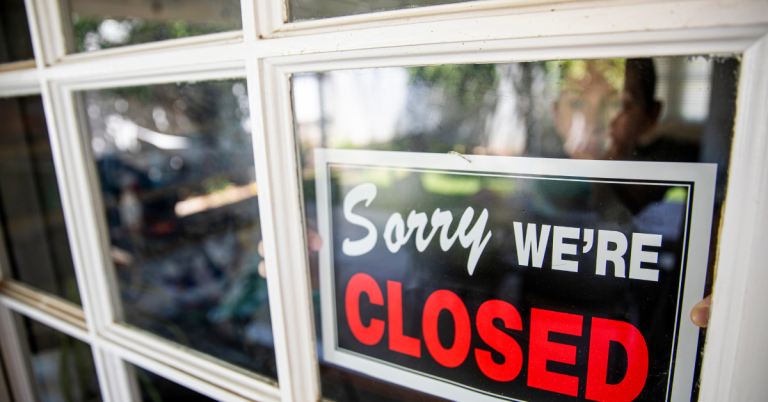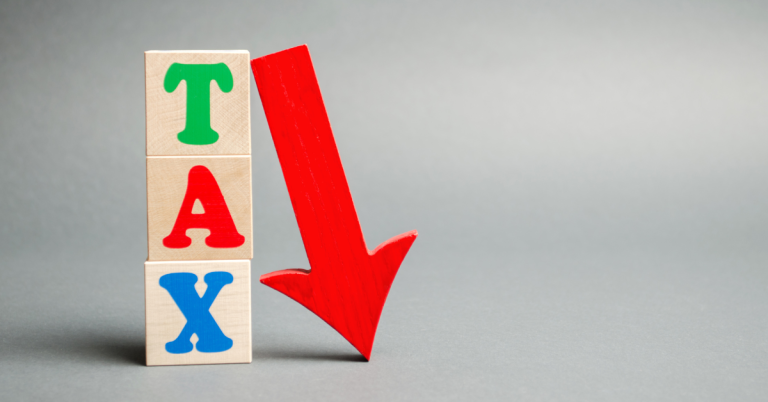What Can I Claim for Being Self-Employed? | Which Expenses Are Allowable
If you are self-employed, you can claim certain expenses against your profits, including those relating specifically to running a business. You can also claim some expenses against your profits that aren’t directly related to running a business. For example, you might claim expenses such as rent, mortgage interest, petrol costs, insurance premiums, repair and maintenance, office equipment and advertising.
You can claim these expenses even if you don’t actually use the items yourself. This includes owning property, having a car, and paying for someone else to do work for you. However, you cannot claim anything that relates to your personal life, such as food, clothing, entertainment, holidays, and gifts.
The amount of money that you can claim depends on how much you earned during the relevant period. If you earned less than £16,000 in 2017/18, you can claim up to £5,000 worth of expenses. If you earned more than £16,000, you can claim up tp £10,000.
For 2018/19, there is no upper limit. Your total allowable expenses will depend on how much you earned in the previous three tax years.

How can I lower my tax liability by deducting business expenses?
If you run a small business, there are many things you can do to reduce your income tax burden. One way to do this is to claim certain business expenses against your personal income. These include rent, utilities, insurance premiums, repairs, advertising costs, travel and entertainment costs, among others. You must keep records of these items and show how much each cost you over the course of a year. This will allow you to calculate your taxable income and what percentage of it you owe in taxes.
You can either use a self assessment form or hire an accountant to complete one for you. If you choose to go down the self assessment route, make sure you read the rules carefully. Some businesses are eligible for deductions while others aren’t. For example, some types of business don’t qualify for depreciation allowances, while others do.
The good news is that most people find filing their returns relatively straightforward. However, you must ensure you’re following the rules correctly. Otherwise, you could end up owing money rather than saving money.
Self-employed allowable expenses list
1. Office supplies
Office supplies are anything used in a workplace that isn’t directly related to work. This includes items like desks, chairs, phones, fax machines and even postage stamps. These expenses aren’t tax deductible, but there are some exceptions.
There are limits to what you could claim as an office supply expense. You can’t claim the cost of a brand new computer, but you could claim the cost of a refurbished one. If you bought a new phone system, it wouldn’t qualify because it doesn’t relate to your job. However, if you buy a refurbished phone system, it might qualify.
Capital allowances are for bigger purchases like computers and software, which are generally considered capital assets. A capital allowance lets you deduct the full amount of the purchase over five years.
2. Office equipment
Businesses can claim a number a different expenses related to office supply. They can include things like paper, ink cartridges, toner cartridges, furniture, computers, software, etc. Some of those items are deductible while others aren’t.
Claiming for smaller items is easy than claiming for larger ones because there are fewer categories to choose from. For example, you don’t have to worry about whether it’s a capital item or a small one. You just have to make sure it’s eligible.
Capital allowances are available for larger purchase. If you buy something big enough to qualify for the allowance, you’ll receive a tax credit based on how much you spend. These credits are usually worth around 20% of what you spent.
3. Business premises
Businesses can claim expenses for rental costs, utilities and security if employees work from home. This includes things like office space, furniture, equipment, computers, internet access and phone lines.
Claiming business expenses is complicated because it involves figuring out what you spent money on and whether it qualifies under a tax deduction. For example, did you pay someone to install a computer system? If so, how much did you spend? Did you buy a desk chair? If so, how expensive was it? Did you purchase a printer? How many cartridges does it use each month? Was there a monthly fee for internet access? What about telephone bills?
In addition to qualifying expenses, you must keep records to prove you actually paid those expenses. You can do this by keeping receipts, invoices, bank statements or credit card statements.
Simplified Expenses allows businesses to claim a flat amount per month. This makes claiming expenses easier and faster.
4. Transport
Traveling is one of those things that everyone loves doing, but it doesn’t always come cheap. If you’re planning on taking a trip soon, there are some important questions you’ll want to ask yourself about travel expenses.
Business trips should be charged to the company’s account. If you take a vacation, however, you can expense the cost against your personal income.
Tax deductions depend on how long you spend out of town. Generally speaking, the longer you’re gone, the bigger the deduction. But remember that you still have to prove that you’ve been “away from home.” So, if you go on a weeklong vacation, you can only deduct half the amount you spent.
5. Legal and professional costs
The legal costs you incur while running your business are allowable, but capped by law at £500 per year (£100/month). This includes fees paid to solicitors, accountants, insurance brokers, banks and credit card companies. You are allowed to claim interest on business loans up to £500 per year (£50/month), and lease payments are allowable, but limited to £500 per year ($75/month).
9. Clothing
Clothing is one of those things we don’t think about much – until it stops working properly. Then you’re left wondering what to do next. Fortunately, there are some simple steps you can take to make sure your clothing lasts longer.
10. Trade subscriptions
You might think it’s easy to write off the costs of trade publications you subscribe to as a tax deduction. But there are some exceptions. In fact, you can deduct the full amount of your subscription expense—even if you never read the magazine or newspaper. Here are 10 examples of how you can use subscription expenses to reduce your taxes.
1. Professional journals
If you’re a professional, you probably pay for professional journals. These include medical journals, legal journals, accounting journals, engineering journals, etc. If you’re self-employed, you can deduct the entire amount of your subscription expense. However, if you’re employed by another person, you can only deduct the portion of your subscription expense that relates to your profession. For example, if you’ve subscribed to a journal about medicine, you can deduct the cost of the journal, even though you haven’t actually read it.
2. Magazines
Magazines are similar to professional journals because they often contain information related to your profession. So, like professional journals, you can deduct the whole amount of your subscription expense if you’re self employed. As long as you’re reading magazines about topics directly related to your profession, such as health magazines, you can deduct the total cost of your subscription.
3. Newspapers
Newspaper subscriptions aren’t deductible, but you can still take advantage of the benefit of receiving newspapers. If you receive a paper that contains news articles relevant to your profession, you can deduct the value of those articles. This includes papers published by local newspapers, regional newspapers, national newspapers, and international newspapers.
What is the tax-free trading allowance?
The tax-free allowance is the amount of money you are allowed to earn each year without paying income tax. You can use it to pay yourself dividends, interest or rent. However, there are limits on how much you can earn tax free every year.
If you’re earning over £100,000 per year, you should consider registering for self assessments. This way HMRC will know exactly what you’re earning and whether you’re eligible for additional allowances.
Claiming capital allowances when self-employed
Capital allowances are an important tax deductible expense for many small businesses. They allow you to write off certain items such as computers, furniture, machinery, etc. This allows you to deduct those expenses against your taxable income rather than having to pay taxes on it immediately. If you use depreciation methods, you must depreciate the item over several years. When you sell the item, you have to include the amount of depreciation taken into the sale price.
However, there are some exceptions to claiming capital allowances. For example, if you buy a computer used, you cannot claim a capital allowance because it does not qualify as a “new” asset. You must wait three years before you can claim a capital allowance for that same computer. Also, if you purchase a computer for resale, you cannot claim a depreciation deduction because it is considered a capital investment. However, you can still take a capital allowance on the cost of the computer itself.
Cash basis accounting vs. accrual basis accounting
The choice of how to account for assets is one of the most significant decisions a business owner makes. There are two main ways to record purchases and sales of assets: cash basis and accrual basis. On the cash basis method, you report income when you receive money for selling an asset, and report expenses when you spend money on buying an asset. With the accrual basis method, you report expenses when you incur them, and report income when you realize the value of an asset sold.
There are pros and cons to each system. Accrual basis accounting is generally preferred because it provides better accuracy. However, cash basis accounting is easier to do and is often less expensive.
Computer equipment
In general, software costs are treated differently depending on whether you use the cash basis or accrual basis method. Software purchased under the cash basis method is reported as ordinary income. Under the accrual basis, software costs are expensed.
If you are unsure about what type of accounting to use, consult a professional accountant.
Frequently Asked Questions
How can I reduce my income tax by claiming business expenses?
As a sole trader or freelancing consultant, all your income above what you earn as a wage is taxable. This includes money earned from freelance projects, such as writing articles or designing logos.
However, HM Revenue & Customs (HMRC) will often not tax you when it makes sense to do so. They might not want to tax you because they know you’ll use the money to run your business. Or they might not want to tax your earnings because they think you’re spending too much time working.
For this reason, many of those costs directly related to the job you do (for example, travel between clients) are considered tax deductible. These are called ‘allowable expenses’ and include things like fuel bills, phone calls and postage.
If you can show that the cost of something is necessary to carry out your work, then you can claim it as a deduction against your income.
You don’t even have to prove that it’s actually been used for work; just that you needed it to do your job.
The rules about whether you can claim certain types of expense vary depending on where you live. In some cases, there are no limits at all. But in others, you might be able to claim up to £2,500 per year.
What expenditures can I claim as a home-based worker?
If your “office” is in your residence, you can still deduct expenses such as heating, electricity, rent, internet service, and telephone service.
This is because it is unlikely that you will have enough space to fit an entire office into your house.
There are several different ways to calculate how much of each utility you use for your home business. Here are some examples:
• If you have five rooms in your house, one of which is used for working, one fifth of your heating bill might be tax deductible.
• Or perhaps you have just one room where you do most of your work – in this case, half of your heating bill could be claimed.
• Alternatively, you could divide up your total utility bills by the number of days per week you spend working from home, and claim based on that figure. For example, if you spend three days a week working from home, you could claim one third of your heating bill.
• Or maybe you don’t even know exactly how many days you spend working from home. In this case, you could simply multiply your monthly utility bills by the percentage of the month you spent working from home, and add that figure to your overall household income. So, say you spent 50% of the month working from home, you would take half of your total utility bill and add it to your household income.
• Finally, you could always ask your accountant what he thinks is the best way to go about calculating the amount of your utilities that you can claim.
Another possibility is to claim simplified expenses. All other business expenses are normally claimable in the normal manner.






